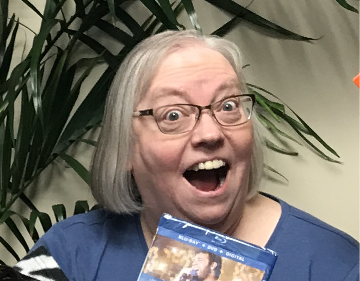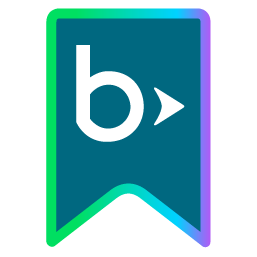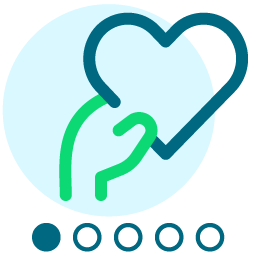Actions VS Notes
Comments
-
I'm right there with you, Barbara! We also are working on moving toward using Actions more and Notes less.
Notes is very free form, which makes it hard to recapture that information in any useful way. A couple of RE trainers refered to Notes as "the place where good information goes to die." :-)
Actions, on the other hand, give you more searchable fields for reporting on activities. I also find it useful to plan an action in advance of when it needs to be done, and get a reminder on my desktop (and others, if needed) when it comes due. It's also easy to assign a followup action.
Our general guideline is, anything WE initiate needs to be an Action. Random info that comes to us, but doesn't need followup can still be a Note. But as I said, we are just starting to "enforce" Action use, so that may change as we go along.
i asked my pro-Action colleagues, and they said the advantages of using Actions are: Trackability, Reportability, Accountability.1 -
Anyone using ActionOmatic product which I hear provides a better user experience working with their action data in RE?0
-
Actions are absolutely the way to go. You can track actions by category, by type, by attribute, by completion status, etc. And of course you can add notes to an action, so you still have that feature there. Actions allow for analytics. Do you want to know how many touches it takes, on average, for a major gift prospect to actually give a major gift? Then you'll need to use actions. Do you want to see if a particlar category of action (phone call vs email, for instance) leads to a tipping point for donors in general, or one donor in particular? You'll need to have actions to do that.
Do you want to give yourself reminders for things you need to do X numberr of days in the future? You need an action for that.
I would strongly suggest you creat several action default templates for typical action types for each person who will be using them. This makes the the process a lot easier for your users, and it keeps your data more consistent. So ideally, all a person would have to do is load up the default that correlates to their action type, then go about typing in their notes. As they grow more comfortable with actions, they can add attributes, or change solicitors, or do whatever makes sense for your business practices.
I'm super thankful that my staff are all about actions.1 -
In additon to the already posted feedback I'll add my own tip to rename notepad types in Config from something like "Call Report" to "Call Report -- THIS SHOULD BE AN ACTION" as a not-so-subtle reminder that they need to change how they enter information.1
-
Barbara, Give them the best of both worlds. Switch to Actions, and create an ACTION NOTEPAD TYPE called "Action Details". This gives them all the functionality of actions and the freedom of Notes. We use the Action Notepad Type - Action Details to give meaning to what would otherwise be unknowable info (what good is it to know a call was made without context?). We also have a standard for using the Action Details Notepad Description as a brief, summary (example: "Getty lunch with Smith Family to determine likelihood to support campaign at $50,000 leadership level.") then the actual notes can be as detailed as you like - where the meeting took place, input from various folks, etc. The Notepad Description is easy to export / query / report on as it is brief and the actual notes can always be added for longer call reports, etc.0
-
You can also use this method to export and import all the existing notes onto actions as Action Detail notepad types to get them started.0
-
Graham Getty:
Barbara, Give them the best of both worlds. Switch to Actions, and create an ACTION NOTEPAD TYPE called "Action Details". This gives them all the functionality of actions and the freedom of Notes. We use the Action Notepad Type - Action Details to give meaning to what would otherwise be unknowable info (what good is it to know a call was made without context?). We also have a standard for using the Action Details Notepad Description as a brief, summary (example: "Getty lunch with Smith Family to determine likelihood to support campaign at $50,000 leadership level.") then the actual notes can be as detailed as you like - where the meeting took place, input from various folks, etc. The Notepad Description is easy to export / query / report on as it is brief and the actual notes can always be added for longer call reports, etc.YES!! But don't let users add new Notepad Types willy nilly! Restrict the rights to add new types. I inherited a database where they had Notepad Types of "Fred's birthday party on Friday" (only a mild exaggeration). 0
0 -
YES!! But don't let users add new Notepad Types willy nilly! Restrict the rights to add new types. I inherited a database where they had Notepad Types of "Fred's birthday party on Friday" (only a mild exaggeration).
 Agreeded. I too inherited a database that previously let Gift Officers add new action and note types. Have everyone agree an a set of standard types and make all the rest inactive and only allow database managers to add new types.0
Agreeded. I too inherited a database that previously let Gift Officers add new action and note types. Have everyone agree an a set of standard types and make all the rest inactive and only allow database managers to add new types.0 -
It's easier to query on Actions,with Notes being a free form field, it's a little bit harder to query.0
-
Without having read the previous posters comments, I would say that Actions are definitely the way to go! Mostly because information gets buried and lost in Notes. With actions, you can query on action date, assign actions for the future and query on upcoming actions that have not yet been completed, link actions to proposals (a big one for us!), run action detail and summary reports (and filter by the officer who did the action), segment your action reports by action type (phone call vs email, or cultivation vs. solicitation), etc.0
-
THe reason we have changed from notes to actions is that actions can be queried.
We are currentl working on outlook integration with actions--but still hae a way to go. We are in the process of setting up actions as a dashboard reminder on the RE homepage.
Hope this helps. And let us know if you get the Outlook thing masterred!
Karen
0 -
Agree with previous comments about the Action Notepad. I inherited a database that had way too many action notepad types, and I minimized it down to just two: Action Strategy (for assigning actions in the future), and Action Summary (where the contact report would go).0
-
We also use actions vs notes for our Development Team. The actions allow the Development Officers to record information from their interactions with donors/prospects. They are restricted to specific action types that they can enter so that we can easily query the system to count metrics. They are also not allowed to add new action types. Notes are more for items that need to be tracked as changes on the account, such as change of address, solicit codes, etc. which are mostly utilized by our processing staff. Our prospect researcher also uses notes to track profile information.0
-
Good Answers; does anyone have any advise for the Outlook component?0
-
Here are a couple of helpful components we incorporated into our actions and constituent notepads...
If you're using actions to track prospect development, (in conjunction with your stakeholders), establish identifiable action "types." We used types such as "Prospect," "Cultivation," "Stewardship," "Ask," etc. You'll want to identify and match the action types with the "touches" that are typical (or desired to be so) in your organization's Moves Management.
To simplify your constituent "notes," I have found that limiting them and aligning them with particular database components is useful. We primarily use notes to expand on dat components; for example "Solicit Code Notes" would include the "what," "when," and "why" a solicit code was added. Other note types include "Address," "Addresee/Name Updates," Obituary/Deceased," etc.
This can be helpful in facilitating querying and reporting!
its always a challenge to implement any "change," but this one is well worth it. Good luck!1 -
Jodi Carlson:
Good Answers; does anyone have any advise for the Outlook component?
Jodi, Barbara, others,
If using Outlook 2010, you may have to manually install an Add In in Outlook. I did. Here is the info on it.4 Adding the Raiser’s Edge Outlook Integration components manually in Outlook 2010
\\Blackbaud\\The%20Raisers%20Edge%207\\HELP\\re.chm::/images/red_arrow.gif) Microsoft Outlook Integration
Microsoft Outlook Integration \\Blackbaud\\The%20Raisers%20Edge%207\\HELP\\re.chm::/images/red_arrow.gif) Installation Notes
Installation Notes \\Blackbaud\\The%20Raisers%20Edge%207\\HELP\\re.chm::/images/red_arrow.gif) Manually Installing or Removing the Outlook Integration COM Add-In
Manually Installing or Removing the Outlook Integration COM Add-In \\Blackbaud\\The%20Raisers%20Edge%207\\HELP\\re.chm::/images/red_arrow.gif) Adding the Raiser’s Edge Outlook Integration components manually in Outlook 2010
Adding the Raiser’s Edge Outlook Integration components manually in Outlook 2010- From the Outlook menu bar, select File, Options. The Outlook Options screen appears.
- Select Add-Ins.
- At the bottom of the screen, make sure COM Add-ins appears in the Manage field, then click Go... The COM Add-Ins screen appears.
- Click Add. The Add Add-In screen appears.
- Browse to the directory where The Raiser’s Edge is installed. In the DLL directory, select the RE7Outlook.dll file and click OK. The COM Add-Ins screen appears again, and Blackbaud RE 7 Outlook Add-In appears in the Add-Ins available grid.
- Click OK.
- You return to Microsoft Outlook 2010, and the Add-Ins tab now appears on the Outlook menu bar.
0 -
I always stress that notes should be specific details about the donor or record, and actions should be details about our interactions with that donor. Notes are for biographical information and other quick references, but the complete story of our relationship with that constituent should be in actions.0
-
Actions enable you to have better and more specific reporting segmentation and activity timing and at a glance information of where, when, who and how long. You can also use the follow on action as a tracker and save the next meeting/contact directly into your outlook calendar. We use this constantly for our collection box recording so we get a reminder everyone, two or three months to courtesy contact the constituent to see how everything is going and if the box needs changing. Fundraisers use outlook to direct email constituents as well.0
-
Hi Barbara,
I think most people have pointed out most of the benefits of actions, (better querying, reminders, they contain their own notes, linking to Outlook) but I'm not sure if anyone has mentioned Action Tracks yet?
Action tracks can be setup, so that once "Action A" has been marked as completed on a constituent record, action "Action B" is automatically added to the record.
By setting up queries or reports to find uncompleted Action B's you can build a workflow so that as actions A, B, C & D etc always follow on from each other.
Can be very handy. Here is the knowledgebase article
http://bbmarketplace.force.com/bbknowledge/articles/Article/37638
0 -
Just want to say that I agree with all that has been said. Actions are essential for tracking progress with constituents as well as proposals. If you have the Prospect module you can have actions associated with that proposal attached so you can report on actions specific to that proposal. Actions still appear on the general Action tab, but are linked to the proposal, campaign and fund as well.0
-
Becky Vodrey:
Here are a couple of helpful components we incorporated into our actions and constituent notepads...
If you're using actions to track prospect development, (in conjunction with your stakeholders), establish identifiable action "types." We used types such as "Prospect," "Cultivation," "Stewardship," "Ask," etc. You'll want to identify and match the action types with the "touches" that are typical (or desired to be so) in your organization's Moves Management.
To simplify your constituent "notes," I have found that limiting them and aligning them with particular database components is useful. We primarily use notes to expand on dat components; for example "Solicit Code Notes" would include the "what," "when," and "why" a solicit code was added. Other note types include "Address," "Addresee/Name Updates," Obituary/Deceased," etc.
This can be helpful in facilitating querying and reporting!
its always a challenge to implement any "change," but this one is well worth it. Good luck!We are still in first year of implementation and would love to see detailed list of notepad and action types that other users have created. Anyone willing to share comprehensive lists of the action and notepad types?0 -
I would love to see a list of Action components, as well! We are just starting to track with actions and we're sitting in limbo right now, trying to get our policies and procedures in order. I know that our officers have contact reports/notes piling up, just waiting to get into RE!
It would be much appreciated. Thank you!0 -
Kim Berry:
Becky Vodrey:
Here are a couple of helpful components we incorporated into our actions and constituent notepads...
If you're using actions to track prospect development, (in conjunction with your stakeholders), establish identifiable action "types." We used types such as "Prospect," "Cultivation," "Stewardship," "Ask," etc. You'll want to identify and match the action types with the "touches" that are typical (or desired to be so) in your organization's Moves Management.
To simplify your constituent "notes," I have found that limiting them and aligning them with particular database components is useful. We primarily use notes to expand on dat components; for example "Solicit Code Notes" would include the "what," "when," and "why" a solicit code was added. Other note types include "Address," "Addresee/Name Updates," Obituary/Deceased," etc.
This can be helpful in facilitating querying and reporting!
its always a challenge to implement any "change," but this one is well worth it. Good luck!We are still in first year of implementation and would love to see detailed list of notepad and action types that other users have created. Anyone willing to share comprehensive lists of the action and notepad types?Wondering if anyone shared a list with you? Would love to see one also...
0 -
I have included my version of moves managment that I have used in a couple different orgs. The Event RSVPs are because we do not have the Event Module and/or the events are small cultivation events that require followup, so they are placed in Actions instead of Events.1
Categories
- All Categories
- Shannon parent
- shannon 2
- shannon 1
- 21 Advocacy DC Users Group
- 14 BBCRM PAG Discussions
- 89 High Education Program Advisory Group (HE PAG)
- 28 Luminate CRM DC Users Group
- 8 DC Luminate CRM Users Group
- Luminate PAG
- 5.9K Blackbaud Altru®
- 58 Blackbaud Award Management™ and Blackbaud Stewardship Management™
- 409 bbcon®
- 2.1K Blackbaud CRM™ and Blackbaud Internet Solutions™
- donorCentrics®
- 1.1K Blackbaud eTapestry®
- 2.8K Blackbaud Financial Edge NXT®
- 1.1K Blackbaud Grantmaking™
- 527 Education Management Solutions for Higher Education
- 1 JustGiving® from Blackbaud®
- 4.6K Education Management Solutions for K-12 Schools
- Blackbaud Luminate Online & Blackbaud TeamRaiser
- 16.4K Blackbaud Raiser's Edge NXT®
- 4.1K SKY Developer
- 547 ResearchPoint™
- 151 Blackbaud Tuition Management™
- 61 everydayhero
- 3 Campaign Ideas
- 58 General Discussion
- 115 Blackbaud ID
- 87 K-12 Blackbaud ID
- 6 Admin Console
- 949 Organizational Best Practices
- 353 The Tap (Just for Fun)
- 235 Blackbaud Community Feedback Forum
- 55 Admissions Event Management EAP
- 18 MobilePay Terminal + BBID Canada EAP
- 36 EAP for New Email Campaigns Experience in Blackbaud Luminate Online®
- 109 EAP for 360 Student Profile in Blackbaud Student Information System
- 41 EAP for Assessment Builder in Blackbaud Learning Management System™
- 9 Technical Preview for SKY API for Blackbaud CRM™ and Blackbaud Altru®
- 55 Community Advisory Group
- 46 Blackbaud Community Ideas
- 26 Blackbaud Community Challenges
- 7 Security Testing Forum
- 3 Blackbaud Staff Discussions
- 1 Blackbaud Partners Discussions
- 1 Blackbaud Giving Search™
- 35 EAP Student Assignment Details and Assignment Center
- 39 EAP Core - Roles and Tasks
- 59 Blackbaud Community All-Stars Discussions
- 20 Blackbaud Raiser's Edge NXT® Online Giving EAP
- Diocesan Blackbaud Raiser’s Edge NXT® User’s Group
- 2 Blackbaud Consultant’s Community
- 43 End of Term Grade Entry EAP
- 92 EAP for Query in Blackbaud Raiser's Edge NXT®
- 38 Standard Reports for Blackbaud Raiser's Edge NXT® EAP
- 12 Payments Assistant for Blackbaud Financial Edge NXT® EAP
- 6 Ask an All Star (Austen Brown)
- 8 Ask an All-Star Alex Wong (Blackbaud Raiser's Edge NXT®)
- 1 Ask an All-Star Alex Wong (Blackbaud Financial Edge NXT®)
- 6 Ask an All-Star (Christine Robertson)
- 21 Ask an Expert (Anthony Gallo)
- Blackbaud Francophone Group
- 22 Ask an Expert (David Springer)
- 4 Raiser's Edge NXT PowerUp Challenge #1 (Query)
- 6 Ask an All-Star Sunshine Reinken Watson and Carlene Johnson
- 4 Raiser's Edge NXT PowerUp Challenge: Events
- 14 Ask an All-Star (Elizabeth Johnson)
- 7 Ask an Expert (Stephen Churchill)
- 2025 ARCHIVED FORUM POSTS
- 322 ARCHIVED | Financial Edge® Tips and Tricks
- 164 ARCHIVED | Raiser's Edge® Blog
- 300 ARCHIVED | Raiser's Edge® Blog
- 441 ARCHIVED | Blackbaud Altru® Tips and Tricks
- 66 ARCHIVED | Blackbaud NetCommunity™ Blog
- 211 ARCHIVED | Blackbaud Target Analytics® Tips and Tricks
- 47 Blackbaud CRM Higher Ed Product Advisory Group (HE PAG)
- Luminate CRM DC Users Group
- 225 ARCHIVED | Blackbaud eTapestry® Tips and Tricks
- 1 Blackbaud eTapestry® Know How Blog
- 19 Blackbaud CRM Product Advisory Group (BBCRM PAG)
- 1 Blackbaud K-12 Education Solutions™ Blog
- 280 ARCHIVED | Mixed Community Announcements
- 3 ARCHIVED | Blackbaud Corporations™ & Blackbaud Foundations™ Hosting Status
- 1 npEngage
- 24 ARCHIVED | K-12 Announcements
- 15 ARCHIVED | FIMS Host*Net Hosting Status
- 23 ARCHIVED | Blackbaud Outcomes & Online Applications (IGAM) Hosting Status
- 22 ARCHIVED | Blackbaud DonorCentral Hosting Status
- 14 ARCHIVED | Blackbaud Grantmaking™ UK Hosting Status
- 117 ARCHIVED | Blackbaud CRM™ and Blackbaud Internet Solutions™ Announcements
- 50 Blackbaud NetCommunity™ Blog
- 169 ARCHIVED | Blackbaud Grantmaking™ Tips and Tricks
- Advocacy DC Users Group
- 718 Community News
- Blackbaud Altru® Hosting Status
- 104 ARCHIVED | Member Spotlight
- 145 ARCHIVED | Hosting Blog
- 149 JustGiving® from Blackbaud® Blog
- 97 ARCHIVED | bbcon® Blogs
- 19 ARCHIVED | Blackbaud Luminate CRM™ Announcements
- 161 Luminate Advocacy News
- 187 Organizational Best Practices Blog
- 67 everydayhero Blog
- 52 Blackbaud SKY® Reporting Announcements
- 17 ARCHIVED | Blackbaud SKY® Reporting for K-12 Announcements
- 3 Luminate Online Product Advisory Group (LO PAG)
- 81 ARCHIVED | JustGiving® from Blackbaud® Tips and Tricks
- 1 ARCHIVED | K-12 Conference Blog
- Blackbaud Church Management™ Announcements
- ARCHIVED | Blackbaud Award Management™ and Blackbaud Stewardship Management™ Announcements
- 1 Blackbaud Peer-to-Peer Fundraising™, Powered by JustGiving® Blogs
- 39 Tips, Tricks, and Timesavers!
- 56 Blackbaud Church Management™ Resources
- 154 Blackbaud Church Management™ Announcements
- 1 ARCHIVED | Blackbaud Church Management™ Tips and Tricks
- 11 ARCHIVED | Blackbaud Higher Education Solutions™ Announcements
- 7 ARCHIVED | Blackbaud Guided Fundraising™ Blog
- 2 Blackbaud Fundraiser Performance Management™ Blog
- 9 Foundations Events and Content
- 14 ARCHIVED | Blog Posts
- 2 ARCHIVED | Blackbaud FIMS™ Announcement and Tips
- 59 Blackbaud Partner Announcements
- 10 ARCHIVED | Blackbaud Impact Edge™ EAP Blogs
- 1 Community Help Blogs
- Diocesan Blackbaud Raiser’s Edge NXT® Users' Group
- Blackbaud Consultant’s Community
- Blackbaud Francophone Group
- 1 BLOG ARCHIVE CATEGORY
- Blackbaud Community™ Discussions
- 8.3K Blackbaud Luminate Online® & Blackbaud TeamRaiser® Discussions
- 5.7K Jobs Board













 Community All-Star
Community All-Star



